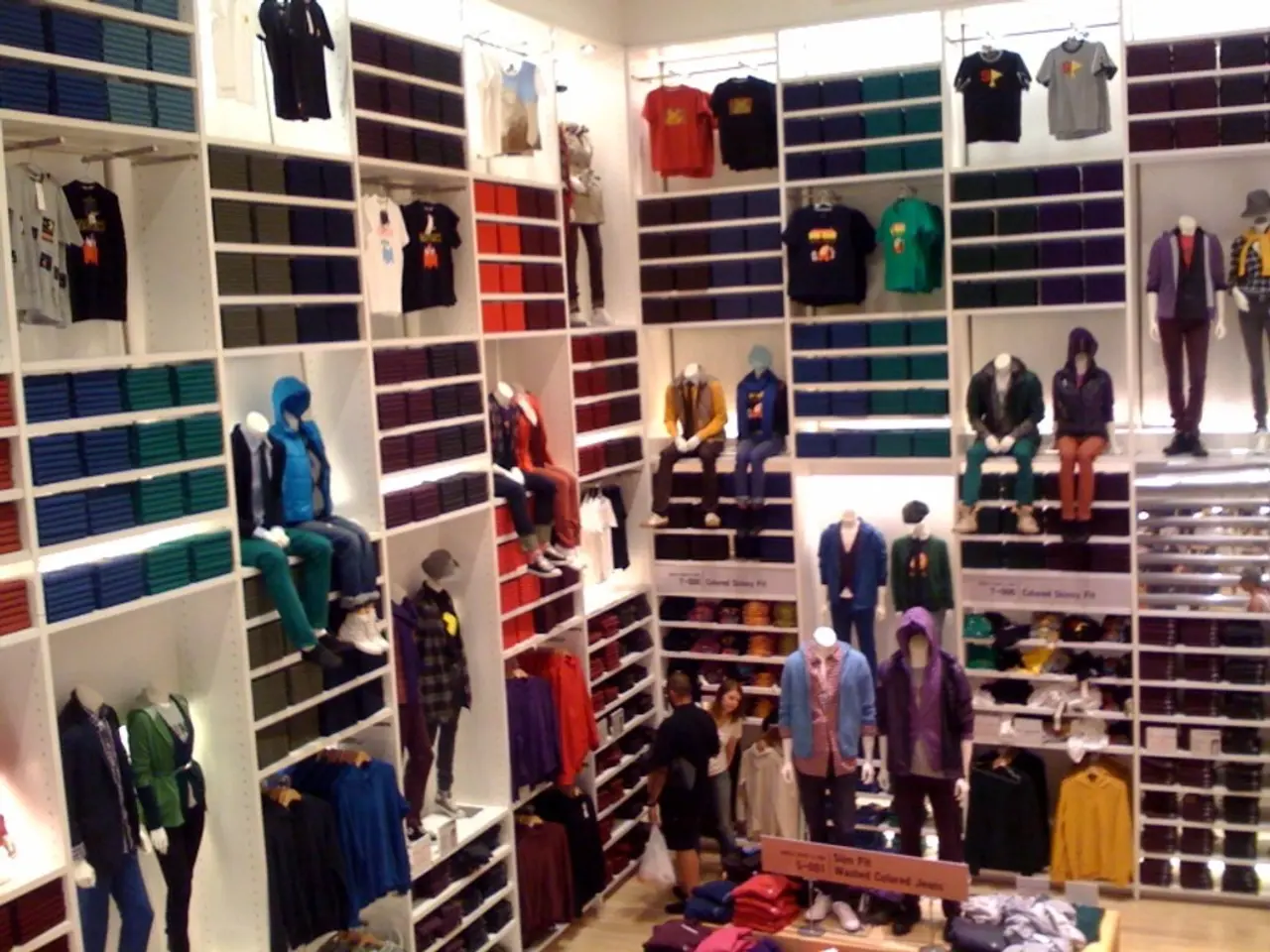AI may become a key player in the world of fashion.
Revolutionizing Fashion: AI Takes Centre Stage
In the ever-evolving world of fashion, artificial intelligence (AI) is making a significant impact. One of the retail pioneers embracing this technological shift is Revolve, which has partnered with A.I. Fashion Week as a retail collaborator.
Gianluca Traina, a forward-thinking fashion designer, was among the early adopters of AI in 2023. He integrates AI technology into his workflow, considering it an integral part of his creative process. Tools like Runway ML, MidJourney AI, and generative design software help him transform his ideas into virtual prototypes and elevate his work.
Meanwhile, students at ASU FIDM are preparing for the future of the fashion design industry by using AI tools. These include 3D modeling applications, AI-driven trend analysis platforms, and even creating AI-assisted fashion designs, as demonstrated by one student who placed in the Top 10 at A.I. Fashion Week.
Revolve, an online fashion retailer, is also leveraging AI. It uses AI for imagery development, personalizing the consumer's experience, and identifying emerging trends. The platform is even experimenting with an AI-driven virtual assistant to improve the fit of clothes and potentially reduce returns.
However, the virtual try-on feature is still in its early stages, and it's too early to report on its effectiveness.
Erik Randerson, Senior Vice President of Investor Relations at Revolve, acknowledges that adapting and deploying technology can be challenging for traditional retailers.
Professor Ellis, who created a course focused on developing AI tools for fashion, believes that students prepared to work with advanced technologies will have a major advantage when they graduate. His students have demonstrated this with projects like a chatbot to help customers choose the right shoes and a sustainability rating system for brands.
Shaun Anthony Hill, a runway model, sees AI being used in the casting process for runway shows, generating templates of headshots for designers. However, Hill expresses concerns about the runway turning completely virtual, believing it could take away from the personal aspects that people tend to appreciate in the fashion industry.
In conclusion, AI is transforming the fashion industry, from design to retail, providing new opportunities and challenges. While some fear it could diminish the personal aspects of fashion, others see it as a tool that enhances the creative process and prepares students for the industry's rapid changes.
Read also:
- Impact of Alcohol on the Human Body: Nine Aspects of Health Alteration Due to Alcohol Consumption
- Understanding the Concept of Obesity
- Tough choices on August 13, 2025 for those born under Aquarius? Consider the advantages and disadvantages to gain guidance
- Microbiome's Impact on Emotional States, Judgement, and Mental Health Conditions








